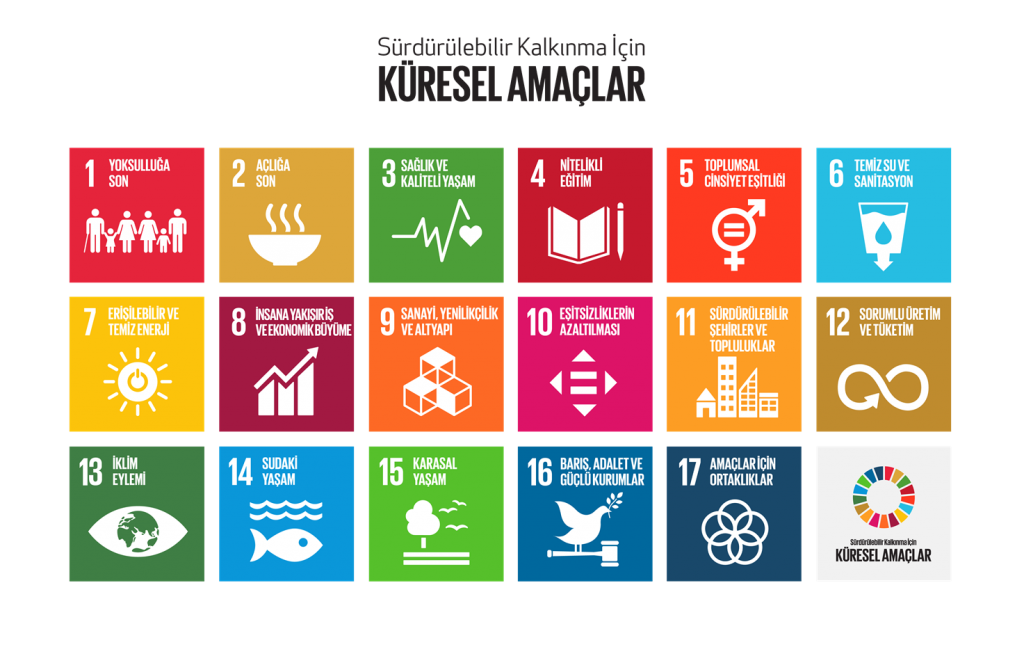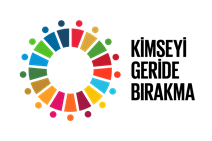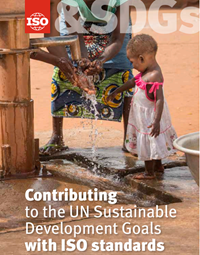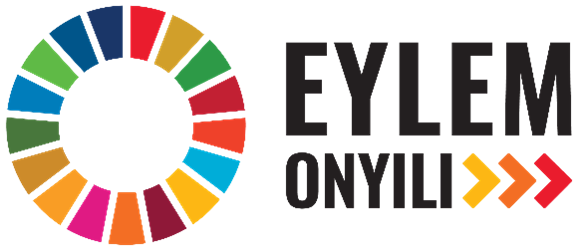© 2023 | Tüm Hakları Saklıdır.
Made with ❤ birsekiz

Sustainable Development Goals, Business Life and Psychosocial Risks
The “Global Goals for Sustainable Development” were set by 193 member states of the United Nations, including Turkey, in 2015 and aim to create three main critical impacts around the world by 2030.
Consisting of seventeen main objectives and 169 sub-targets, this initiative encourages actions to be taken in terms of these three critical main problems, through studies carried out through all kinds of social formations and channels around the world until 2030. The emphasis is on a change of mindset that prioritizes reflection on how all activities at individual, collective, institutional and governmental scales serve global purposes.
Today, the public, private sector, professional organizations and non-governmental organizations are encouraged to link all their activities with the “United Nations Sustainable Development Goals”.

| The “Global Goals for Sustainable Development” [1.1] offers principles to which individuals and social entities will commit. This formation, which is encouraged to be implemented for all people and in all countries from “Leaving No One Behind”, emphasizes that the aims should be known by everyone, and invites humanity to “Take Action” and “Tell Everyone”. For example, the "World's Biggest Lesson" open education platform for educational institutions and their employees has been prepared as one of the systematic channels to convey these principles to children and youth. |

“Business for Goals Platform[1.2]” offers a focus where institutions can make self-assessment in terms of global goals and review their fields of activity, processes and products in terms of global goals.
In Turkey, under the leadership of "Business World Platform for Goals", UNDP (United Nations Development Programme), TUSIAD, TÜRKONFED, to emphasize the role of the business world for development purposes, ensure their contribution and increase participation, thus "bring Turkey closer to sustainable development goals". was established in. This formation, “How Can the Private Sector Support Sustainable Development?” While answering the question, it focuses on “innovation capacity, human resources, technical information and technological inputs” without being limited to financing and investment. New business areas, service and product opportunities, productivity and performance increase, financial support and incentives for companies that attach importance to sustainability, and the potential to expand the talent pool of institutions are listed as "The Contribution of Working in Sustainable Development to the Private Sector".
While expressing this mutual benefit, especially within the scope of “Goal 8. Decent work and economic growth”,
We believe that jobs and organizations should be made accessible to the workforce.
In this context,
| Among the standards that ISO deals within terms of its impact on development goals is "ISO 45001- Occupational Health and Safety Management Standard" and one of its current sources is "ISO 45003- Psychological Health and Safety in the Workplace - Guide to the Management of Psychosocial Risks". ISO lists the development objectives touched by the 45003 guideline, which aims to provide guidance on the employee health and safety management system and, in this context, the management of psychological health and safety risks. |




Goal 3.Good Health and Well-Being
Goal 5.Gender Equality
Goal 8.Decent work and Economic Growth
Goal 9.Industry, Innovation and Infrastructure
Goal 10.Reducing Inequalities
Goal 11.Sustainable Cities and Communities
Goal 16.Peace, Justice and Strong Institutions
In this way, businesses will not only create safe and healthy working conditions for their employees through "45001 Occupational Health and Safety Management Systems" and "ISO 45003 Guide on the Management of Psychosocial Risks", but will also be able to serve their global development goals through safe work and healthy employees. Job designs, interpersonal relationship styles and quality, managerial approaches, leadership styles and organizational culture, which will ensure the sustainability of human health, competencies and energy, which are the most valuable resource of businesses, both physically and psychologically.
Job designs, interpersonal relationship styles and quality, managerial approaches, leadership styles and organizational culture that will ensure the sustainability of the health, competencies and energy of people, who are the most valuable resource of businesses, will allow the creation of safe conditions both physically and psychologically. All kinds of initiatives that increase the quality of working life will also transform work and business life into “decent” ones.

Since the countdown has begun in the Sustainable Development Goals as of 2020, we observe that there is a lot of work in this field in the world. This countdown is called the “Decade of Action”[3.1]. In this last 10 years, all businesses should aim to improve the working conditions of people, to control psychosocial risks as a current focus, and to establish an organizational system that will protect the psychological health of employees. ISO 45003 provides a framework to serve this goal.
PRISMA INSTITUTE is also ready to support the Turkish business community to make their contribution to sustainable development goals visible in terms of prevention of psychosocial risks and protection of employee psychological health.
You can contact us to get an idea about the approaches and methodologies we will follow.
[1.1] www.kureselamaclar.org
[1.2] https://www.business4goals.org/
[1.3] https://www.kureselamaclar.org/wp-content/uploads/8_Insana_Yakisir_Is_ve_Ekonomik_Buyume.pdf
[2.2] https://www.iso.org/sdgs.html
[2.1] https://www.iso.org/files/live/sites/isoorg/files/store/en/PUB100429.pdf
[3.1] https://www.tr.undp.org/content/turkey/tr/home/eylem-onyili.html
© 2023 | Tüm Hakları Saklıdır.